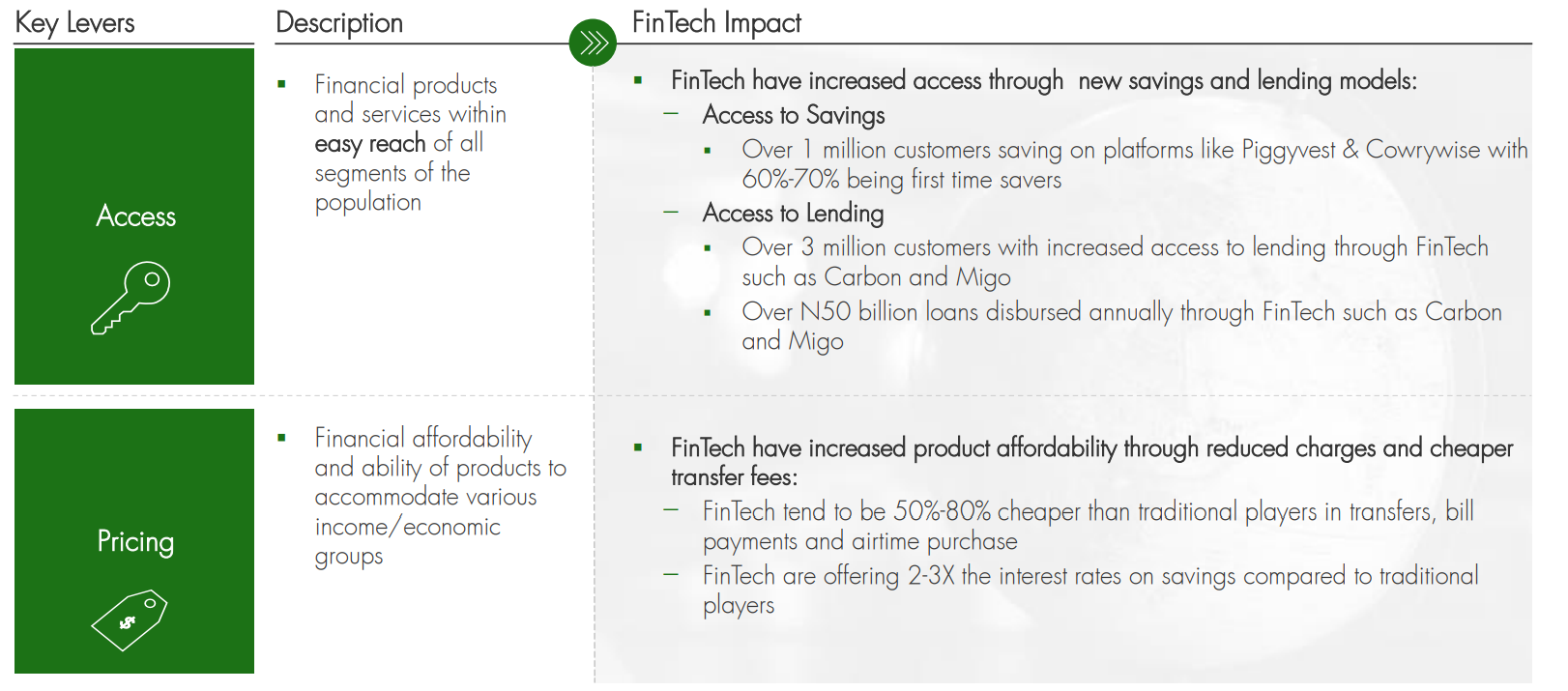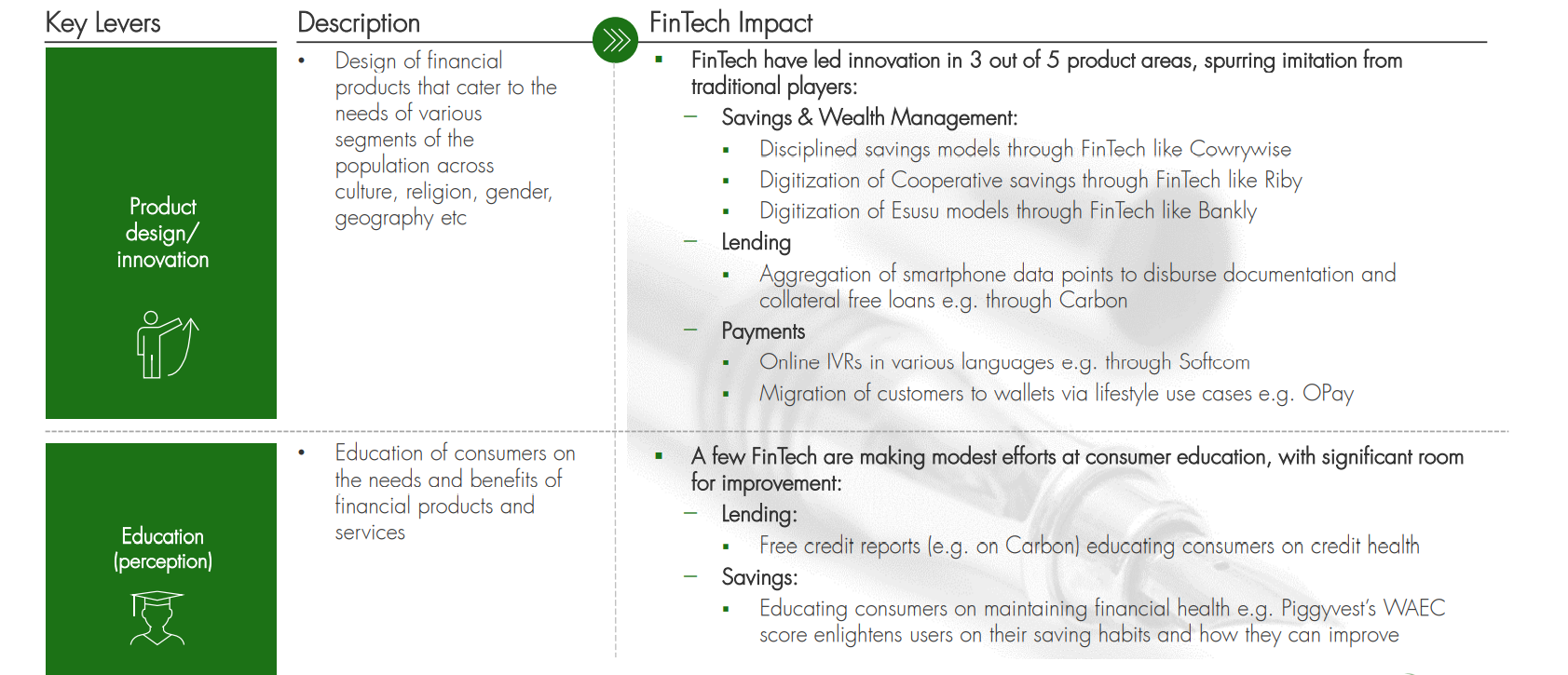Despite the rapid growth of Fintechs in Nigeria, the country still faces a significant financial inclusion challenge and a greater financial deepening problem. However, it is undeniable that this growth has given rise to financial products that has the potential to benefit underserved communities. A new feat in the industry which traditional banks are not structured for.
In this digital age, Fintech remains a key to financial inclusion. The reason being that it makes financial services more efficient and reduces cost of operation, all of which satisfies customers' need.
In its 2020 report, EFInA indicated four key levers through which FinTechs are driving financial inclusion:
- Access: By access, financial products and services are within easy reach for all segments of the population.
- Pricing: Financial affordability and ability of products to accommodate various income/economic groups
- Product design/ Innovation: Design of financial products that cater to the needs of various segments of the population across culture, religion, gender, geography etc
- Education (Perception): Education of consumers on the needs and benefits of financial products and services.


To advance financial inclusion in Nigeria, Fintech solutions possess great potentials that should be harnessed.










